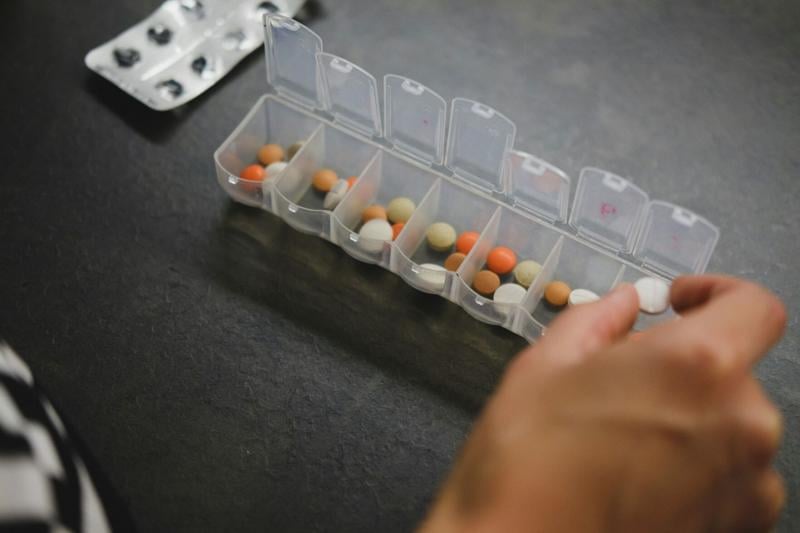Medicare premiums and senior citizens’ prescription drug costs have surged since passage of the Inflation Reduction Act, according to data compiled by an advocate for seniors on the federal health care program.
Since the passage of the Inflation Reduction Act in 2022, which promised financial relief for millions of people with Medicare by expanding benefits, lowering drug costs, and strengthening Medicare for future seniors, prescription drug costs instead have risen nationally by 31%, leaving seniors with new expenses and fewer options. Those costs will rise again under the new Plan B premiums.
With less than a week until the 2024 presidential election, these higher Medicare monthly drug premiums will be seen in 45 of 50 states, including those considered battleground states. More than 67 million Americans rely on Medicare for their health care.
As previously reported by The Center Square, the new average plan bid for a standard Part D coverage will increase by 179% for 2025, partly due to an underestimation of federal attributions to the Part D changes.
The Biden administration’s Medicare prescription drug premiums could cost taxpayers more than $21 billion over three years.
The national monthly average cost rose from $47.69 in 2022 to $62.34 in 2025, a 31% increase that will cost seniors an additional $176 annually per individual, according to Mark Merritt, the founder of Medicare Is for Seniors’ “Misery Index.”
Merritt told The Center Square that seniors end up paying the tab with higher monthly Medicare premiums. He said that the Inflation Reduction Act, signed into law by President Joe Biden after Vice President Kamala Harris cast the decisive vote in the Senate, makes Medicare Drug Plans offer costly new benefits and siphons funds from Medicare into the federal treasury to fund the IRA, most notably its electric car and green energy subsidies.
These increases come despite claims from the Biden-Harris Administration that the IRA would lower costs.
In an op-ed for the Atlanta Journal Consitution, Merritt wrote that “rates for Medicare Prescription Drug Plans have risen four times more than the national rate of inflation since the IRA was enacted. In some battlegrounds, it’s risen eight or nine times higher.”
Georgia seniors will see a monthly premium increase of 59% in 2025, totaling $73.42 compared to $46.05 in 2022. North Carolina seniors will see a 39% increase in monthly premiums, rising from $46.67 in 2022 to $65.00 in 2025, while Pennsylvania seniors will see a 35% monthly increase to $71.53 a month in 2025 from $52.86 in 2022, according to the index.
Merritt reiterated that Medicare and prescription drug savings are used to finance other parts of the IRA that have nothing to do with Medicare.
The Inflation Reduction Act added red tape and government mandates to Medicare Part D, which increased seniors’ drug costs, he said.
“Before the IRA overhauled Part D, costs for Medicare drug benefits had stayed flat for the previous 18 years,” Merritt said.
“So there’s an IRA double whammy; it’s that the law’s spending contributed to higher general inflation of 7% since 2022,” said Merritt, but caused “Medicare Inflation” to spike 31% during those same two years.
According to KFF, an independent source for health policy research, polling, and news, insurers are increasing premiums for their stand-alone drug plan offerings, but not “across the board.” They also are reducing standalone prescription drug plan offerings, from 709 plans in 2024 to 524 plans nationwide in 2025.
Wisconsin is one of the few states that will see a decline in monthly premium costs, according to the misery index, when rates decrease 5%, $50.10 in 2022 to $47.83 in 2025.
New York seniors will see the highest increase in Medicare PDP plans since the IRA was passed, with a rate of $52.46 in 2022, increasing to $97.13 in 2025.
California will see an increase of 69%, with the coverage increasing from $55.82 monthly in 2022 to $94.31 in 2025, making it the second largest increase on Merrit’s Misery Index.
Nevada seniors will see the third-highest increase in prescription drug costs, when premiums increase from $44.24 in 2022 to $72.52 in 2025.
Centers for Medicare & Medicaid Services state on their website that the IRA offers provisions of financial relief for those with Medicare by lowering some drug costs, keeping prescription drug premiums stable, and improving the strength of the Medicare program.
The benefits include a cap of $35 for a month supply of insulin, access to recommended adult vaccines without cost-sharing, a yearly cap of $2,000 in 2025 on out-of-pocket prescription drug costs, and the expansion of the low-income subsidy program.







